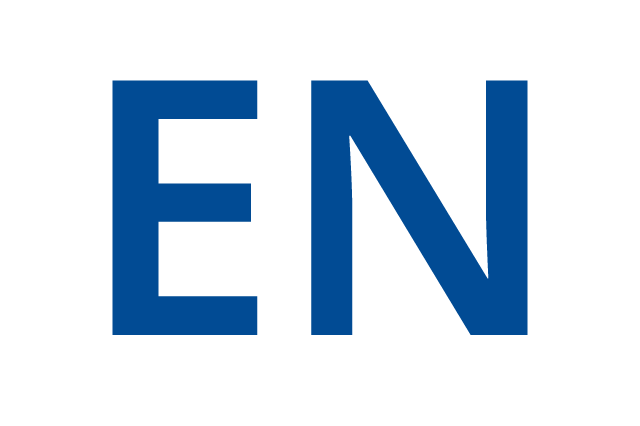
| Données Personnelles | Thématiques de recherche | Charges de cours | Publications |
LEBRUN Céline



Unités
Research in nuclear engineering at ULB was started about 50 years ago. At the beginning of the sixties, Prof. Jacques Devooght (supported in particular by Profs. P. Baudoux, A. Jaumotte and P. Kipfer) initiated research activities in nuclear engineering, including theoretical as well as experimental activities. The theoretical activities were mostly dedicated to the analytical and numerical solutions of the Boltzmann equation for neutron transport. Experimental activities in nuclear physics as well as in neutron physics were also initiated at the same time. From 1960 to the present time, the research activities in nuclear engineering have, of course, strongly evolved. They can presently subdivided in 4 research themes : 1) numerical calculus and development of numerical algorithms, 2) Reliability, availability, maintainability and safety of industrial systems, 3) physical aspects of nuclear engineering including interactions of ionizing radiation with matter (fundamental and applied aspects), simulation of nuclear materials, 4) nuclear engineering including neutron transport, radioactive waste disposal, etc.
TIPs - Transport phenomena and process engineering
The objective of the research carried out at the Transfers, Interfaces and Processes (TIPs) laboratory of the Université libre de Bruxelles (ULB) is the experimental characterization and the mathematical modeling of transport phenomena within systems containing several phases (gas and/or liquid and/or solid), exchanging matter, heat or momentum, through an interface between these phases, at scales between the micron and the millimeter. The research carried out revolves around mainly fundamental and/or generic questions. They have direct applications in the fields of health, environment, heat transfer technologies and agro-food, chemical, microtechnology, materials and space industries. Our current research concerns 9 scientific topics: Drying, Enzymatic processes, Evaporation and boiling, Gas-liquid transfers, Microfluidics, Physiological fluids, Soft/Wet microrobotics, Surface rheology and, as a side research area, the characterization of Ancient hydraulic systems. The TIPs laboratory is composed of 5 professors and approximately 35 researchers. It is divided into two research units : "TIPs - Transport phenomena and process engineering" and "TIPs - Fluid physics". The TIPs laboratory collaborates with a number of scientific and industrial partners in Belgium, Europe, USA, Israel and Canada, in the frame of several networks funded by the European Commission or by the European Space Agency, and also thanks to support at National level (BELSPO, FNRS, Brussels and Walloon Regions). The team investigates mostly fundamental and/or generic questions, i.e. common to several natural or industrial processes. Studied problems most often involve notions of nonlinear dynamics, physical chemistry (equilibrium and non-equilibrium), statistical mechanics, transport phenomena, applied mathematics, ... The used tools are either theoretical (stability analyses, scaling laws, asymptotic techniques, ...), numerical (commercial or 'home-made' software), or experimental (fluid behavior visualization by interferometry, Schlieren, infrared thermography, ...). The TIPs laboratory has an experimental facility devoted to the realization, the characterization and the manipulation of systems including several phases (gas and/or liquid and/or solid), exchanging mass, energy or momentum, at a characteristic length scale between the micron and the millimeter. The lab is part of the Micro-milli platform. It is managed by Adam Chafaï, PhD.
Au Service TIPs (Transferts, Interfaces et Procédés) de l'ULB, les recherches en cours ont pour but principal de développer de nouvelles méthodes théoriques, numériques et expérimentales, permettant de comprendre et de prédire le comportement de systèmes multiphasiques, et de concevoir ou d'optimiser des procédés industriels de transformation de la matière (minérale, organique, biologique) et de l'énergie. Ces recherches s'articulent essentiellement autour de sept grands thèmes: le mélange, les transferts de matière gaz-liquide, la dynamique des interfaces fluides et leurs instabilités, le mouillage, les milieux poreux, le transfert de chaleur et les changements de phase (évaporation, cristallisation, ...). Le Service est structuré en deux Unités de Recherche complémentaires : l'Unité de Physique des Fluides et l'Unité de Génie Chimique. L'Unité de Physique des Fluides collabore avec de nombreux partenaires scientifiques et industriels en Belgique, en Europe, aux Etats-Unis, en Israël et au Canada, dans le cadre de plusieurs réseaux financés par la Commission Européenne ou par l'Agence Spatiale Européenne, et grâce également aux financements nationaux (BELSPO, FNRS, Régions Bruxelloise et Wallonne). Les thématiques de recherche s'articulent autour de questions principalement fondamentales et/ou génériques, c'est-à-dire communes à de nombreux processus naturels ou industriels. Les problèmes étudiés font le plus souvent intervenir des notions de dynamique non-linéaire, de chimie physique (équilibre et non-équilibre), de mécanique statistique, de phénomènes de transport, de mathématiques appliquées, ... Les outils utilisés sont soit théoriques (études de stabilité, lois d'échelles, techniques asymptotiques, ...), soit numériques (codes commerciaux ou 'maison'), soit expérimentaux (visualisation de comportements des fluides par interférométrie, Schlieren, thermographie infrarouge, ...).
Projets
Cette personne ne fait actuellement pas partie d'un projet.

